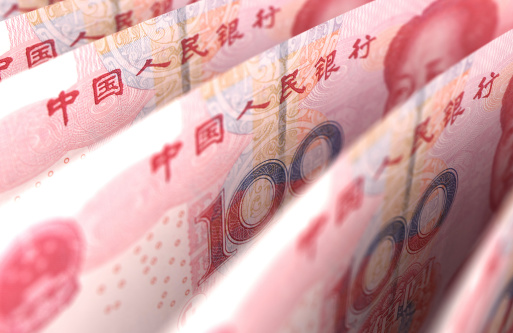
This is the fourth time in about seven years that the bank has loosened its hold on the renminbi, popularly known as the yuan, and the change is the largest ever. The last time the People’s Bank widened the trading band on the renminbi was in April 2012, when the band was widened from 0.5% to 1%. Prior to that, the band was last widened from 0.3% to 0.5% in May 2007.
Moves such as this matter. The bank has long said that it wants the renminbi to become an international currency, but it has been unwilling to let the currency trade freely. During the financial crisis, many economists and politicians called for China to loosen its control on the renminbi and allow it to strengthen. That would have had the effect of raising the prices for the country’s exports, giving the manufacturing industries in other countries — like the United States — a price advantage the market.
Further widening of the renminbi’s trading band is unlikely to have much effect on currency exchange rates. A currency price change of more than 2% a day is a rare thing. What the bank’s next move will be is anybody’s guess, and ours is that it will remove entirely its daily fixed reference rate and allow the country’s currency to float freely. That is not likely to happen for a few years, though, as the country assesses the impact of this latest change.
The widening of the trading band should also signal to the country’s investors that the government is going to take its thumb off the scales and allow the free market to play a larger role in setting prices. Removing currency controls entirely would take away the advantages that state-owned enterprises, big exporters and the government itself have in the Chinese economy.
The yuan gained 2.9% in 2013 and closed at 6.1502 to the dollar on Friday. Since the beginning of the year, the currency has slipped nearly 2%. Its largest single swing was a drop of 0.86% on February 28, the biggest one-day decline since 2007.
China’s GDP growth last year totaled 7.7%, and the country is aiming for GDP growth of 7.5% this year. But if the yuan continues to appreciate, hitting that target gets harder. In a note, JPMorgan economists led by Zhu Haibin wrote that yuan depreciation, “could support exports, and capital outflow will drain domestic liquidity and open the window for reserve-requirement ratio cuts by the PBOC.” Bloomberg News reported that Zhu also cut his 2014 growth estimate for Chinese GDP from 7.4% to 7.2%.
Find a Qualified Financial Advisor (Sponsor)
Finding a qualified financial advisor doesn’t have to be hard. SmartAsset’s free tool matches you with up to 3 fiduciary financial advisors in your area in 5 minutes. Each advisor has been vetted by SmartAsset and is held to a fiduciary standard to act in your best interests. If you’re ready to be matched with local advisors that can help you achieve your financial goals, get started now.
Thank you for reading! Have some feedback for us?
Contact the 24/7 Wall St. editorial team.


